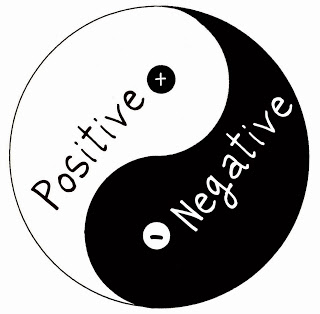我们如何理解世界(思维的二元性)

Table of contents
二元性是人类思维的一个基本特征。 我们的思维利用二元性来理解世界,使世界变得有意义。
如果我们的思维没有二元性,我想我们就不可能描述我们周围的世界。 没有语言,没有文字,没有测量,什么都没有。 思维之所以是思维,是因为它具有二元性。
什么是二元性
二元性是指通过对立面来理解现实。 人的思维通过对立面来学习--长与短、粗与细、近与远、冷与热、强与弱、上与下、好与坏、美与丑、正与负等等。
不知短,无以知长;不知细,无以知粗;不知寒,无以知热,如此等等。
主客体分裂--基本二元性
你的思维使你成为时间和空间的观察点。 这基本上意味着,你是中心(主体),你周围的世界是你的观察领域(客体)。 这种基本的二元性或主体/客体分裂产生了所有其他的二元性。
如果这种基本的二元性以某种方式消失了,你将无法理解这个世界,因为没有 "你 "可以理解,也没有 "任何东西 "可以理解。
更简单地说,你是一个善于观察的生命体,这让你能够理解现实,而你是通过使用你的头脑来做到这一点的。
相反相成
如果没有对立面,一切都会失去意义。 假设你完全不知道 "短 "是什么意思,我有一根魔杖,在你头上一挥,你就完全不知道 "短 "是什么意思了。
See_also: 我们如何用嘴巴表达不赞同在这个魔法仪式之前,如果你看到一栋高楼,你可能会说:"那是一栋高楼"。 你之所以能这么说,是因为你知道 "矮 "是什么意思。 你有东西可以和 "高 "做比较,也就是 "矮"。
如果我在你头上挥舞魔杖后,你看到了同一栋楼,你不可能说 "那是一栋高楼"。 你也许只能说 "那是一栋楼"。 当 "矮 "的概念被摧毁时,"高 "的概念也被摧毁了。
我们只有通过了解对立面才能形成概念。 任何事物都是相对的,如果某个事物没有对立面,就无法证明它的存在。

心灵究竟是什么
让我用一小段话简要概括心灵的本质......心灵是二元性的产物,或者说是我们来到这个世界时所处的主客体分裂的产物。 也可以说,主客体分裂是心灵的产物。
无论如何,这种与宇宙的分离性让我们的大脑能够以这样的方式运作,从而理解现实并使其有意义。
心灵认识石头,是因为它看到了不是石头的东西;心灵认识快乐,是因为它知道了不是快乐的东西,比如悲伤;心灵不知道 "不是什么",就无法理解 "是什么"。 没有 "不知道",就不可能有 "知识";没有 "不是真的",就不可能有 "真理";没有 "不是真的",就不可能有 "真理"。
真正的成熟
当一个人意识到心灵是通过二元性来理解世界时,他就达到了真正的成熟。 当一个人意识到自己的二元性时,他就开始超越二元性。 他从心灵中退后一步,第一次意识到自己有能力观察和控制自己的心灵。
See_also: 对虚构人物的痴迷是一种疾病吗?他意识到自己的意识是有层次的,在意识的阶梯上爬得越高,他对自己心灵的控制力就越强。 他不再乘着 "时上时下 "的二元性波浪,而是来到了可以观察/观察/研究波浪的岸边。
他不再诅咒负面情绪,而是意识到正面情绪离不开负面情绪。 他意识到如果没有悲伤,快乐就失去了意义。 他不再无意识地沉浸在自己的情绪中,而是意识到这些情绪,将其客观化并加以理解。

